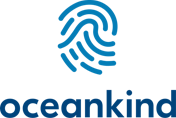| Grantee | Regional Partnership for the Conservation of the Coastal and Marine Zone in West Africa ↗ |
| Grant Amount | $993,000 |
| Duration | Three Years |
Located in West Africa, Senegal is one of the countries in the sub-region with a relatively long coastline (718 km) and high diversity of fish in its waters. The fishery sector is a key economic sector. Fishing (and related activities) provides jobs for ± 600,000 Senegalese, which represents at least 15% of the working force. With an export volume of 150,909 tonnes/year, the fisheries sector is the largest export sector in the country, and it represents 3,2% of the total GDP. In addition, the port of Dakar offers attractive landing conditions for vessels operating in the sub-region and is a key landing and transit site for industrial vessels operating in West Africa.
Despite its importance to the country and the region, the fisheries sector faces various constraints. In 2012, Senegal lost $300 million or 3,2% of its GDP to illegal, unreported and unregulated (IUU) fishing. Even if the State has since made considerable efforts, through the adoption of a new law, the development of a national action plan to combat IUU fishing, validated in 2015 and the acquisition of operational resources, IUU fishing activities remain rampant. This is particularly concerning as high market value (mainly exported) coastal demersal stocks (deep fish) remain fully and even overexploited. In addition, the fishing pressure on species consumed locally (small pelagics) is increasing due to the growing export of these species, with a serious risk of a shortage of supply on the local market.
There is a lack of information and capacities to detect linkages between Senegal-based companies and fishing operations in the region, which has diminished the countries’ ability to fight possible IUU fishing operations and conduct targeted controls.
This project will effectively and sustainably improve Senegal's capacity to fight IUU fishing through better fisheries governance, in particular by increasing the transparency of the activities of fisheries policy bodies, through enforcement of fisheries legislation and by building capacities of stakeholders in Senegal.
At the end of the project, the platforms of the fisheries management policy bodies and the tools for combating IUU fishing will have been strengthened, more integrated and traceable in an information system of the Ministry of Fisheries and Maritime Economy.
Going a step further, at the end of the project Senegal will meet stronger fisheries governance and transparency benchmarks notably through tangible actions encompassing a wide range of institutional instruments - from the formulation of necessary pieces of legislation to operational actions directly contributing to enhancing the country’s capacity to fight IUU fishing.
This will be supported by the adherence of Senegal to the FiTI (Fisheries Transparency Initiative) standards including the forthwith and regular publication of information on the fishing sector, in particular the fishing agreements, licenses and authorizations – consistently with and feeding into information made available through the FAO Global Record –, the list of stakeholders in Senegal’s Exclusive Economic Zone (EEZ), etc.
To magnify the long-term impact of the reforms undertaken and ensure policy changes are durable, Senegal will benefit from solid multi-stakeholder partnerships with strengthened in-country advocacy capacity, stakeholders empowered to document IUU fishing, and relevant international actors, most notably the EU, having renewed and enhanced their cooperation and support.
The durability of the policy changes achieved will be further secured through the partners attaching great importance that the achievements, lessons learned and recommendations of this Oceans5 project feed into Senegal’s post 2023 fisheries policy.
The project will not only contribute to the conservation and sustainable use of Senegal’s Exclusive Economic Zone and resources, but also to reducing poverty, achieving food security, and to sustained and sustainable economic growth and consumption. Strengthened institutional capacities and secured support of well-informed stakeholders will also contribute to making a step forward in building an inclusive society and revitalizing the global partnership.
Reinforcing the fight against IUU fishing in Senegal is expected to have further positive impact in the region and beyond, considering the importance of Senegal as a flag and coastal state.





















